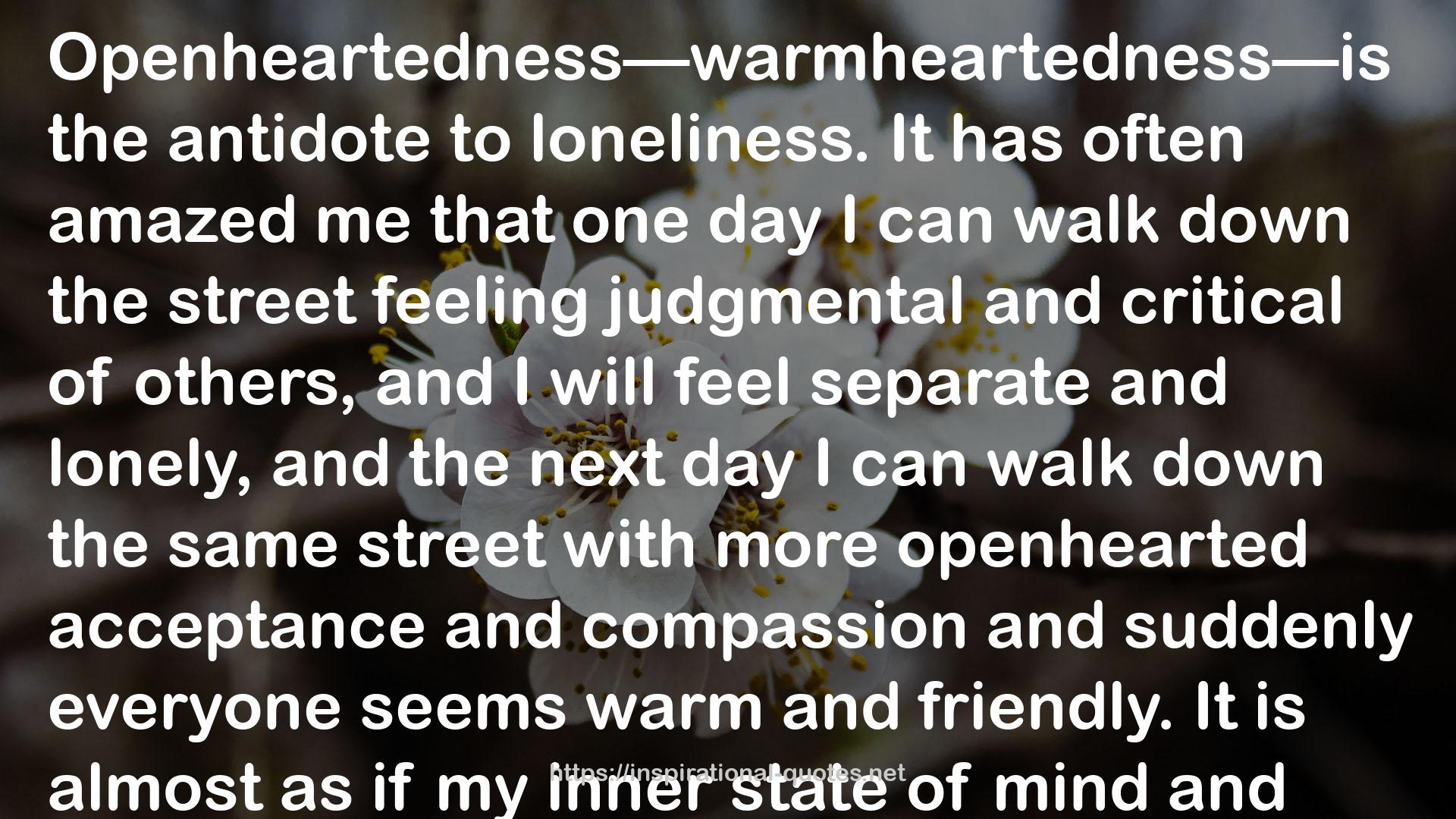122
" Now if we look at today’s materialistic life people seem mainly concerned with sensory experiences. So that’s why their satisfaction is very limited and brief, since their experience of happiness is so dependent on external stimuli. For example, so long as the music is playing, they feel happy.” He tilted his head to the side with a smile as if appreciating the music. “When something good is happening, they are happy. Good food, they are happy. When these things stop, then they feel bored, restless, and unhappy. Of course this is nothing new. Even in the time of the Buddha, people would fall into the trap of thinking that sensory experience would bring them happiness. "
― Dalai Lama XIV , The Book of Joy: Lasting Happiness in a Changing World
135
" It turns out that our perspective has a surprising amount of influence over the body’s stress response. When we turn a threat into a challenge, our body responds very differently. Psychologist Elissa Epel is one of the leading researchers on stress, and she explained to me how stress is supposed to work. Our stress response evolved to save us from attack or danger, like a hungry lion or a falling avalanche. Cortisol and adrenalin course into our blood. This causes our pupils to dilate so we can see more clearly, our heart and breathing to speed up so we can respond faster, and the blood to divert from our organs to our large muscles so we can fight or flee. This stress response evolved as a rare and temporary experience, but for many in our modern world, it is constantly activated. Epel and her colleague, Nobel Prize–winning molecular biologist Elizabeth Blackburn, have found that constant stress actually wears down our telomeres, the caps on our DNA that protect our cells from illness and aging. It is not just stress but our thought patterns in general that impact our telomeres, which has led Epel and Blackburn to conclude that our cells are actually “listening to our thoughts.” The problem is not the existence of stressors, which cannot be avoided; stress is simply the brain’s way of signaling that something is important. The problem—or perhaps the opportunity—is how we respond to this stress. Epel and Blackburn explain that it is not the stress alone that damages our telomeres. It is our response to the stress that is most important. They encourage us to develop stress resilience. This involves turning what is called “threat stress,” or the perception that a stressful event is a threat that will harm us, into what is called “challenge stress,” or the perception that a stressful event is a challenge that will help us grow. The remedy they offer is quite straightforward. One simply notices the fight-or-flight stress response in one’s body—the beating heart, the pulsing blood or tingling feeling in our hands and face, the rapid breathing—then remembers that these are natural responses to stress and that our body is just preparing to rise to the challenge. • "
― Dalai Lama XIV , The Book of Joy: Lasting Happiness in a Changing World
139
" One great question underlies our existence,” the Dalai Lama had said before the trip. “What is the purpose of life? After much consideration, I believe that the purpose of life is to find happiness. “It does not matter whether one is a Buddhist like me, or a Christian like the Archbishop, or any other religion, or no religion at all. From the moment of birth, every human being wants to discover happiness and avoid suffering. No differences in our culture or our education or our religion affect this. From the very core of our being, we simply desire joy and contentment. But so often these feelings are fleeting and hard to find, like a butterfly that lands on us and then flutters away. “The ultimate source of happiness is within us. Not money, not power, not status. Some of my friends are billionaires, but they are very unhappy people. Power and money fail to bring inner peace. Outward attainment will not bring real inner joyfulness. We must look inside. “Sadly, many of the things that undermine our joy and happiness we create ourselves. Often it comes from the negative tendencies of the mind, emotional reactivity, or from our inability to appreciate and utilize the resources that exist within us. The suffering from a natural disaster we cannot control, but the suffering from our daily disasters we can. We create most of our suffering, so it should be logical that we also have the ability to create more joy. It simply depends on the attitudes, the perspectives, and the reactions we bring to situations and to our relationships with other people. When it comes to personal happiness there is a lot that we as individuals can do. "
― Dalai Lama XIV , The Book of Joy: Lasting Happiness in a Changing World

